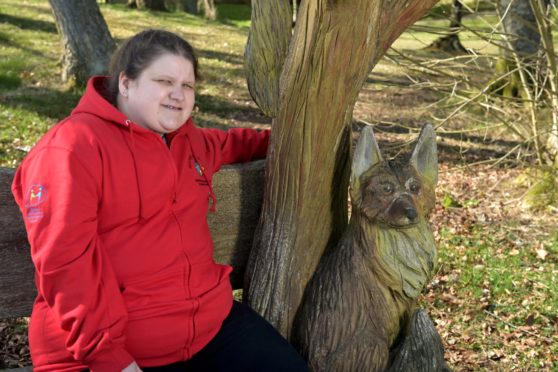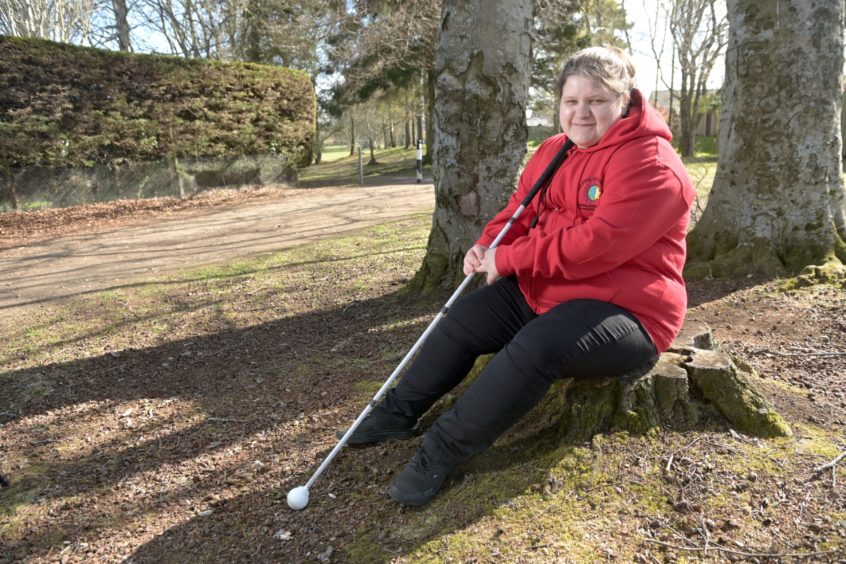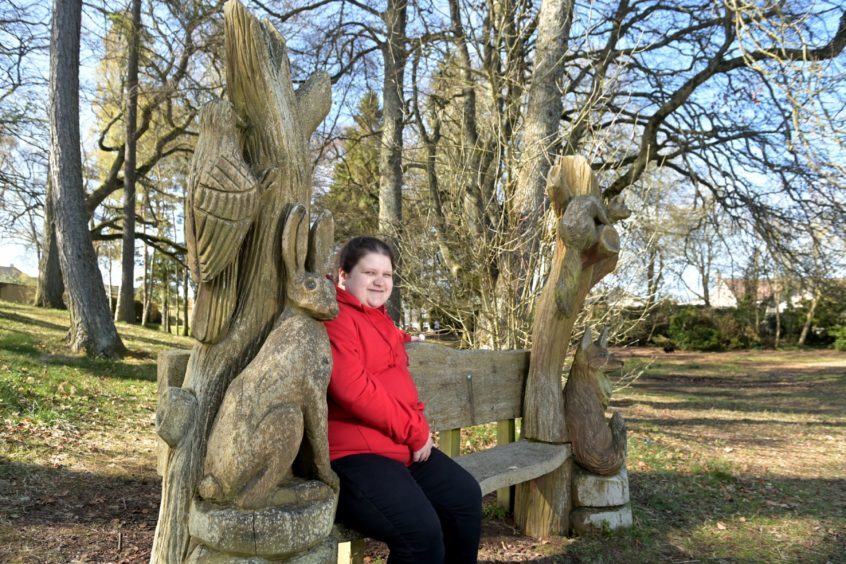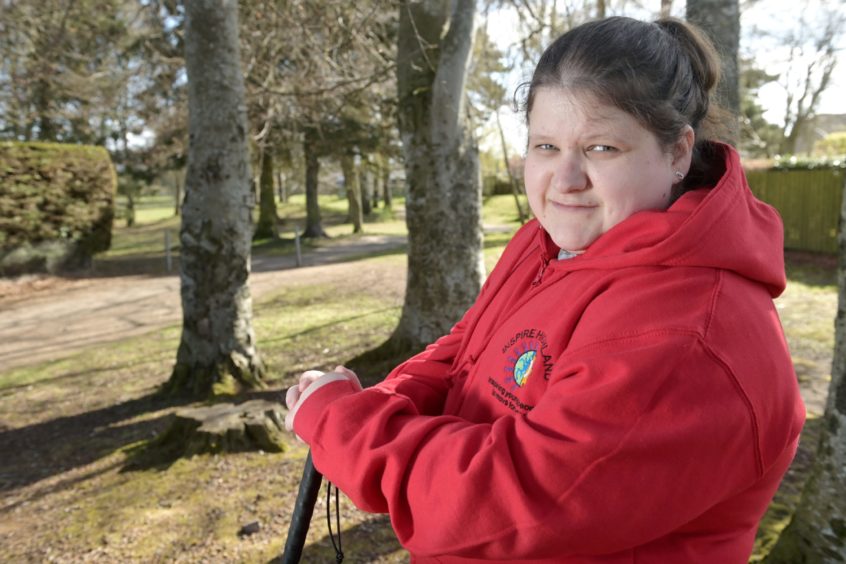At 21 years old, Sarah Campbell has the world at her feet.
She is quietly confident, and her determination grows as the conversation unfolds.
For Sarah, who lives in Inverness, is on a mission to make a difference to youngsters across the Highlands.
Were you to rush past Sarah in the street, you would perhaps not notice anything out of the ordinary.
But for Sarah, a simple walk can be thwarted by obstacles, and she relies on a white cane to help her scan her surroundings.
Positive thinking
There was once a time when she had no issue with her eyesight, and could easily join in with other children at primary school.
But a genetic condition called retinitis pigmentosa (RP) means Sarah’s sight has worsened over time and she is now registered blind.
To be robbed of sight would be devastating to most, but Sarah’s upbeat nature means she has turned her experience into a positive.
She hopes that by reaching out to other youngsters who are also facing sight loss, people may feel less alone in their experiences.
She has been supported in her quest by the charity Highland Children and Young People’s Forum, which in turn runs youth participation project Inspire Highland.
Although it is early days, Sarah is hopeful that a group will be set up which could enable young people with visual impairments to campaign for change.
Raising awareness
From public perception to accessibility, there are clearly changes which need to be made.
“When I was in primary school, I had full vision,” said Sarah.
“I didn’t have many problems, I could read books no problem.
“It wasn’t until I was at secondary school that my eyesight started to get worse.
“I do still have some vision, but my peripheral vision has decreased as I’ve got older.”
RP causes breakdown and loss of cells in the retina — which is the light-sensitive tissue that lines the back of the eye.
It is a relatively rare condition, and it differs from person to person.
Sarah is expected to lose most of her sight as time goes on, but she refuses to be beaten.
“I had the idea for a group, because it can be difficult to meet other young people who are also facing visual impairment,” she said.
“Geography doesn’t help either, but the hope is that the group will bring people together.
“It would be so helpful to talk about the issues you face, with someone who can understand because they’ve also been through it.
If you don’t have sight loss, it can be difficult to really know what the problems are
The group will also enable youngsters to socialise, and discuss how they may want to influence policy.
Highland Children and Young People’s Forum is currently undertaking a consultation to listen to children and young people with a visual impairment, to find out about their experience of support in and out of school.
The consultation aims to find examples of good practice, gaps in support and suggestions for improvements.
Changing policy
For Sarah, a lack of support in education made her life difficult.
“I did struggle to get the proper support, with all the material provided in the right format,” she said.
“Buses can also be a really big problem, I struggle to know which bus is mine because I can’t see the number.
I already have anxiety about the journey, and it would help if drivers did something simple
“So when I get on the bus, they could say ‘this is bus 23’.
“Talking timetables aren’t available at all bus stations.”
For most young people, meeting in a coffee shop is straightforward. But Sarah must navigate menus that are not geared up for people with visual impairments.
“I’d love to see accessible menus, even if they were in larger font,” she said.
“I’m just like any other young person, I want to enjoy time with my friends and find employment.
“But again, it’s all about accessibility in the workplace.
“I’m hopeful that by setting up a group, it means these problems won’t be such an issue for the next generation.”
To join the group, email participation@HCYPF.org or by phone 07789 680811.



